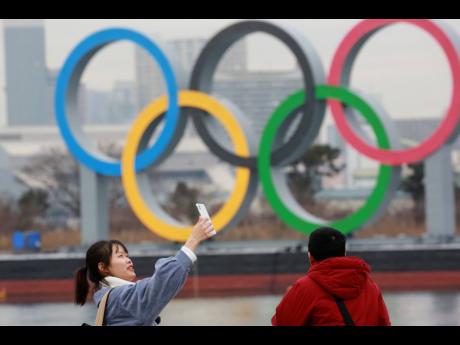IOC, Tokyo to roll out Olympics plan
TOKYO (AP):
Remember the word: Playbook.
This is the rule book that the IOC and Tokyo organisers are set to roll out next week to explain how 15,400 Olympic and Paralympic athletes and tens of thousands of others will try to safely enter Japan when the Olympics open in just under six months.
Organisers and the International Olympic Committee are finally going public with their planning, hoping to push back against reports the Olympics will be cancelled with Tokyo and much of Japan still under a state of emergency with COVID-19 cases rising.
The roll-out at Olympic headquarters in Switzerland is planned for February 4, with Tokyo likely to present on February 5.
“We created four different scenarios, one that had travel restrictions, clusters – to one where the pandemic was nearly gone,” Lucia Montanarella, head of IOC media operations, explained.
“The present scenario is very much like one of those that we’d created, with the pandemic still among us, and some countries being able to contain it, some not.”
Safe bubbles
The playbook will be about creating safe bubbles in Tokyo, and will be updated with changing protocols as the July 23 opening gets closer. The Paralympics are schedule to open on August 24.
Athletes and those travelling to Japan – coaches, judges, media, broadcasters, VIPS – are likely to face some self-quarantine period before they leave home. This will be followed by tests at the airport, tests arriving in Japan, and frequent testing for those staying in the Athletes Village alongside Tokyo Bay.
Montanarella said “We know that we are facing a huge challenge, this is to create a bubble for all athletes. One thing is to create a bubble for 200 athletes in just one sport, and a very different thing is to create a bubble for thousands of athletes of different sports.”
A major unanswered questions involves fans. How many fans will be allowed into venues? Will fans from abroad be permitted?
Olympic Minister Seiko Hashimoto said that the decision will be announced “by the spring”. Fewer fans means more costs for Japan. The local organising committee expected to received US$800 million from ticket sales. Any shortfall will have to be made up by Japanese government entities.
IOC President Thomas Bach, who has said vaccines are not “obligatory”, is still pushing for all participants to be vaccinated. The World Health Organization said earlier this week that Olympic athletes should not be a priority ahead of health care workers, the elderly and the vulnerable.
Vaccine roll-out
Japan has more than 5,000 deaths attributed to COVID-19, but its health care system is under stress with deaths and new cases rising. A vaccine roll-out is expected next month, but later in spring for much of the general public.
The president of the Japan Medical Association sounded a warning last week when asked about the Olympics and possible patients from abroad.
“Many people will come from abroad, and it’s a huge number, even with just the athletes,” Dr Toshio Nakagawa said. “In this situation, if coronavirus patients appear among them as a collapse of the medical system is happening and is spreading, it will not be possible to accept them. Unless a miracle happens, such as the vaccine roll-out suddenly succeeding, or a cure is suddenly found, we are not able to accept more patients.”

